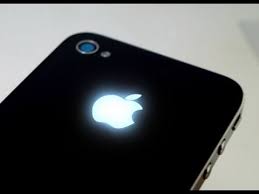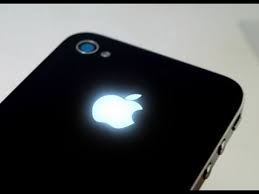
In an order that heightens a long-running dispute between tech companies and law enforcement over the limits of encryption, a U.S. judge on Tuesday ordered Apple Inc to help the FBI break into a phone recovered from one of the San Bernardino shooters.
Judge Sheri Pym of U.S. District Court in Los Angeles said in a ruling that Apple must provide "reasonable technical assistance" to investigators seeking to unlock the data on an iPhone 5C that had been owned by Syed Rizwan Farook.
Auto-erase function, which activates after 10 consecutive unsuccessful passcode attempts and assisting investigators to submit passcode guesses electronically are the two assistance demanded from Apple.
Apple did not immediately respond to a request for comment. Pym said that if Apple believes compliance would be "unreasonably burdensome", the company has five business days to contest the order.
In order to compel Apple to assist the investigation into the Dec. 2 shooting rampage by Farook and his wife that killed 14 people and injured 22 others, the Federal prosecutors in Los Angeles had requested the court order on Tuesday.
The two were killed in a shootout with police.
The couple's potential communications with the Islamic State and other militant groups and treating the case as an incident of domestic terrorism are being investigated by the FBI.
"Apple has the exclusive technical means which would assist the government in completing its search, but has declined to provide that assistance voluntarily," prosecutors said.
The expanded use of strong encryption is hindering national security and criminal investigations said U.S. government officials and have warned against such excessive use.
Forcing U.S. companies to weaken their encryption would make private data vulnerable to hackers, undermine the security of the Internet and give a competitive advantage to companies in other countries, say technology experts and privacy advocates who are in favor of strict encryption.
It was “impossible” for the company to unlock its devices that run an operating system of iOS 8 or higher, Apple had told a federal judge in New York in a similar case last year.
According to prosecutors the phone belonging to the Farook ran on iOS 9.
Prosecutors said Apple could still help investigators by disabling "non-encrypted barriers that Apple has coded into its operating system."
Amid growing digital privacy concerns spurred in part by the leaks from former National Security Agency contractor Edward Snowden, Apple and Google both adopted strong default encryption in late 2014.
Presenting a novel question to the court about whether the government could order a private company to hack its own device, forensics expert Jonathan Zdziarski said on Tuesday that Apple might have to write custom code to comply with the order.
Investigators would be able to work with the NSA and CIA on cracking the phone, Zdziarski said that because the San Bernardino shooting was being investigated as a terrorism case. He said that those U.S. intelligence agencies likely could break the iPhone’s encryption without Apple's involvement.
(Source:www.reuters.com)
Judge Sheri Pym of U.S. District Court in Los Angeles said in a ruling that Apple must provide "reasonable technical assistance" to investigators seeking to unlock the data on an iPhone 5C that had been owned by Syed Rizwan Farook.
Auto-erase function, which activates after 10 consecutive unsuccessful passcode attempts and assisting investigators to submit passcode guesses electronically are the two assistance demanded from Apple.
Apple did not immediately respond to a request for comment. Pym said that if Apple believes compliance would be "unreasonably burdensome", the company has five business days to contest the order.
In order to compel Apple to assist the investigation into the Dec. 2 shooting rampage by Farook and his wife that killed 14 people and injured 22 others, the Federal prosecutors in Los Angeles had requested the court order on Tuesday.
The two were killed in a shootout with police.
The couple's potential communications with the Islamic State and other militant groups and treating the case as an incident of domestic terrorism are being investigated by the FBI.
"Apple has the exclusive technical means which would assist the government in completing its search, but has declined to provide that assistance voluntarily," prosecutors said.
The expanded use of strong encryption is hindering national security and criminal investigations said U.S. government officials and have warned against such excessive use.
Forcing U.S. companies to weaken their encryption would make private data vulnerable to hackers, undermine the security of the Internet and give a competitive advantage to companies in other countries, say technology experts and privacy advocates who are in favor of strict encryption.
It was “impossible” for the company to unlock its devices that run an operating system of iOS 8 or higher, Apple had told a federal judge in New York in a similar case last year.
According to prosecutors the phone belonging to the Farook ran on iOS 9.
Prosecutors said Apple could still help investigators by disabling "non-encrypted barriers that Apple has coded into its operating system."
Amid growing digital privacy concerns spurred in part by the leaks from former National Security Agency contractor Edward Snowden, Apple and Google both adopted strong default encryption in late 2014.
Presenting a novel question to the court about whether the government could order a private company to hack its own device, forensics expert Jonathan Zdziarski said on Tuesday that Apple might have to write custom code to comply with the order.
Investigators would be able to work with the NSA and CIA on cracking the phone, Zdziarski said that because the San Bernardino shooting was being investigated as a terrorism case. He said that those U.S. intelligence agencies likely could break the iPhone’s encryption without Apple's involvement.
(Source:www.reuters.com)





